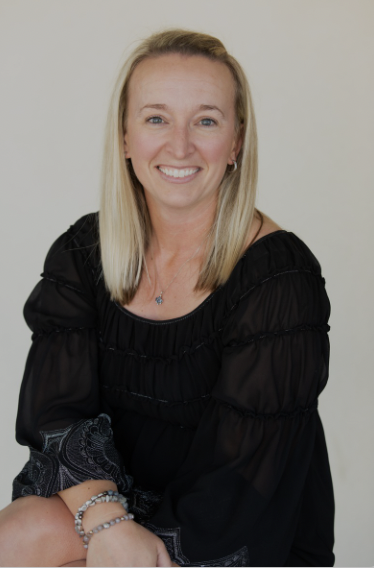
Coeur d’Alene held one of the biggest school elections of 2023.
And in the end, it wasn’t even that close.
In May, North Idaho voters passed a two-year, $50 million supplemental levy — amidst warnings that the Panhandle district needed the money to head off hundreds of job cuts and several school closures. This levy passed with a comfortable 63% majority, just two months after voters had narrowly rejected the district’s original proposal.
Coeur d’Alene is a case study of high-stakes education politics, circa 2023. The supplemental levy is vitally important to the district, accounting for about a fourth of its overall budget. But it took five months, and two loud elections, for Coeur d’Alene to convince their patrons to keep a property tax levy on the books.
But for every community like Coeur d’Alene, there are numerous communities where supplemental levy elections are routine to the point of being dull. In a state where elected officials embrace local control — or at least talk reverently about the virtues of government closest to the people — all levy politics is local.
Here’s how the politics played out in several Idaho communities.
Coeur d’Alene: ‘The community decided to make a difference’
In March, district officials tried to break the ongoing cycle of one- or two-year levy elections.
Coeur d’Alene sought a permanent levy, worth $25 million a year. The district tried to tap into an obscure section of election law that allows districts to ask for a permanent levy. In order to qualify, a district needs to collect a levy for at least seven years, and this levy must account for at least one fifth of its overall budget.
With its levy dating back to 1986, Coeur d’Alene qualified, and community members urged Superintendent Shon Hocker to put a permanent proposal on the ballot — so the district wouldn’t put its budget on the line every two years. But during the campaign, Hocker heard pushback from patrons who dubbed the proposal a “forever tax.” Ultimately, the measure received only 49% support, falling shy of the simple majority needed for passage.
After that, the district rebooted — and sounded an alarm.
The district came back with a $25 million-a-year proposal, but only for two years. The May election represented one last chance to get a levy on the books in time for the July 1 start of the budget year, and district leaders painted a grim picture for patrons. Declaring a financial emergency, district officials said another failed levy would force them to close four schools and cut 300 jobs. Sports, extracurriculars and electives were also on the block.
“Our levy just failed and so if it doesn’t pass in May, none of us will have jobs — none of us music teachers,” Kristina Phillips, Coeur d’Alene’s fifth-grade strings teacher, told EdNews in a March 15 interview. “And my husband teaches band and orchestra at the high school and so that affects both of us.”
The high stakes in Coeur d’Alene were not lost on state superintendent Debbie Critchfield.
“You’re trying to accomplish something that is important and is helpful to your overall education environment, but it’s tied to something very unpredictable,” she said in a recent interview.
A supplemental levy will allow Coeur d’Alene to increase classified employee wages, but it may not be enough. “My employees can quit me and go to McDonald’s and make $17,” Superintendent Shon Hocker said.
The district would again face opposition from the Kootenai County Republican Central Committee — a force in local politics, backing a fleet of successful conservative candidates for the Legislature and the North Idaho College board of trustees. So supporters took the second election seriously, Hocker said.
“The community decided to make a difference,” he said, “and really be proactive.”
Most of the levy proceeds will go into employee salaries and benefits. Using levy dollars and state funding, the district will make good on one of the big promises of the 2023 legislative session: a $6,300 raise for every teacher. Classified employee wages, which had started at $12.75 an hour, will now start at $16. It’s a step, but it won’t solve the district’s problems.
“My employees can quit me and go to McDonald’s and make $17,” Hocker said.
Emmett: One levy fails, two levies fly
Like Coeur d’Alene, Emmett lost at the polls in March. Superintendent Craig Woods attributes Emmett’s loss to two factors: The district didn’t get the word out, and it asked for too much. The two-year, $3 million levy — up from $1 million a year — received only 43% support.

“Our community, they didn’t want to see an increase in taxes,” Woods said.
Responding to community feedback, Emmett did something unorthodox. Backtracking to $2 million over two years, Emmett split its levy into two pieces: $1.2 million for building maintenance work, and $800,000 for special education and counseling. The levies passed with 58% and 54% support, respectively.
All told, four districts were able to pass supplemental levies in May after unsuccessful March elections: Coeur d’Alene, Emmett, Lakeland and Payette.
Plummer-Worley: ‘A very tense time’
When a supplemental levy does fail in May — weeks before the start of a new budget year — the scramble begins quickly.
That’s what happened in 2022 in Plummer-Worley, on the Coeur d’Alene Indian Reservation.
Plummer-Worley’s two-year, $1.25 million levy failed in March — and failed a second time in May, when it reappeared on the primary election ballot.

The second election prompted some teachers to retire or leave the district, and the district relied heavily on alternative certifications. Fall JV or middle school sports were put on hold as Plummer-Worley worked with neighboring districts on scheduling. “It was a very tense time,” Superintendent Russ Mitchell said.
While scrambling with hiring and sports schedules, Plummer-Worley went back to voters in August, with a third version of the levy. The amount was unchanged. But under a new state law, which went into effect on July 1, the district added a detailed spending plan to the ballot.
The language didn’t have much of a bearing at the polls, Mitchell said, since many members of the community were more or less locked in for or against the levy. But turnout was down significantly, and almost certainly a factor. While 1,076 people voted in the May levy election — including many voters drawn to a series of high-profile and highly polarized Republican primaries — only 818 people came back to vote in August. The levy passed with 59% support.
Ultimately, Plummer-Worley was able to fill all of its teaching vacancies, but some positions were open when classes began on Sept. 6. “That’s not the way you want to start the school year,” Mitchell said.
Cascade: ‘A difficult navigation’
The Central Idaho district has collected a $650,000-a-year supplemental levy since 2019-20. But the renewal coincided with a political dustup that had nothing to do with the levy itself.

Six weeks before the March election, Cascade’s transgender policy came under fire. The small district received about 150 emails, about 90% in opposition to a policy allowing students to use a restroom consistent with their gender identity.
“It lit a firestorm on social media. … for our little community,” first-year Superintendent Joni Stevenson said.
Having watched a similar controversy unfold in Caldwell, Cascade appointed a committee to review the policy. The committee recommended pulling the policy, pending action from the Legislature. Lawmakers later passed a bill requiring schools to restrict bathrooms and locker rooms to a student’s gender assigned at birth.
“That was a difficult navigation,” Stevenson said. “You just did not know what was coming next, so you had to be on top of your game.”
The controversy didn’t affect the outcome at the polls — although support softened somewhat. This year’s two-year, $1.3 million levy passed, with a 66% majority. In 2019 and 2021, identical levies passed with 70% and 72% support, respectively.
Highland: ‘I’ll take bland and boring any day’
Tucked in the rolling farm country of north-central Idaho, the Highland School District has collected a $499,000-a-year levy for a decade.
And unlike Stevenson, first-year Superintendent Tana Kellogg had a quiet time of it. Patrons extended the Highland levy for one more year, giving it 69% support.
“(It) was really boring and it was really bland, and we were so happy,” Kellogg said of the March election.

That’s not to say the election was unimportant. More than half of the $499,000 will go toward classified employee salaries, for classroom paraprofessionals, librarians and office staff. Without the money, Highland would probably have to let some classified staff go, or move some money around to keep them on the job. With the money, Kellogg will be able to increase pay, and compete with jobs in Lewiston, a hilly 40-minute drive away. “They’ll hopefully be willing to work for us.”
This isn’t a unique story to Highland. In March, on the other side of the state, Southeast Idaho’s Grace School District focused nearly half of its two-year, $900,000 levy on salaries and benefits — with an eye to classified employees, and paraprofessionals making $9.50 an hour. “You’ve got to really love your job to do that,” Superintendent Jason Moss said. Grace’s levy received 79% support.
Highland and Grace are representative of numerous rural districts scattered across the state, where patrons have quietly and reliably voted for levies for years. (Grace has collected a levy since 2010-11, gradually increasing its amount.)
While Kellogg is a first-year superintendent, she has been careful to stick with Highland’s formula. Voters are accustomed to the annual review — “They just expect it to happen,” she said — and they are pretty comfortable with where the $499,000 has been going.
And as she watched the levy drama unfold in Coeur d’Alene, a couple hours to the north, Kellogg developed an appreciation for the routine. “I’ll take bland and boring any day.”
This series at a glance
Monday: A new law requires transparent levy elections — but the results are mixed
Tuesday: Districts lean on short-term levies to pay for long-term investments — people
Wednesday: All politics is local, and levy elections can be contentious, or routine
Thursday: Lawmakers rewrote the school election calendar. What happens next?
